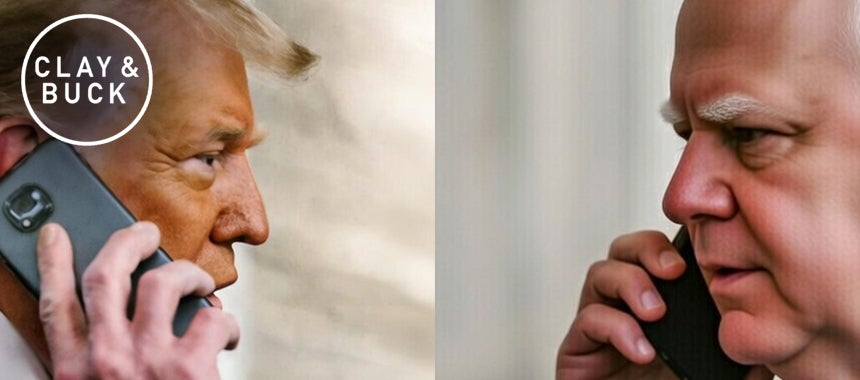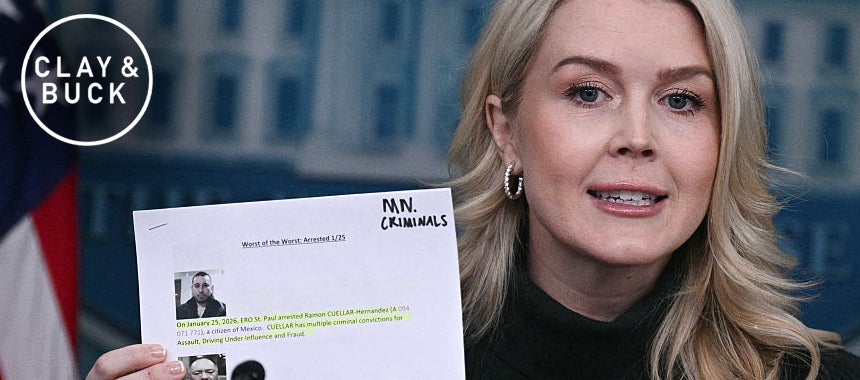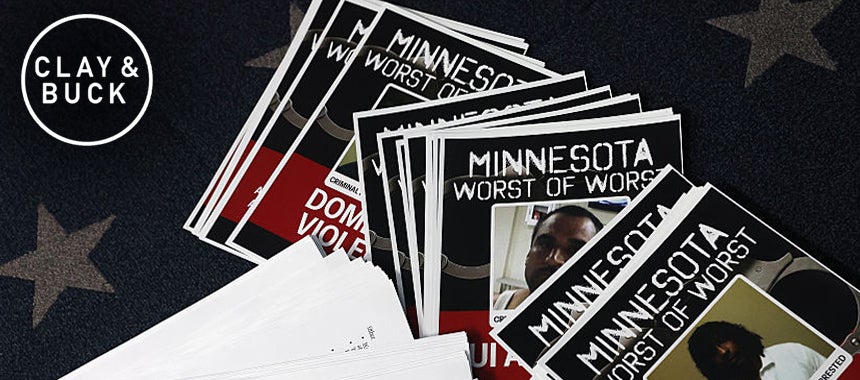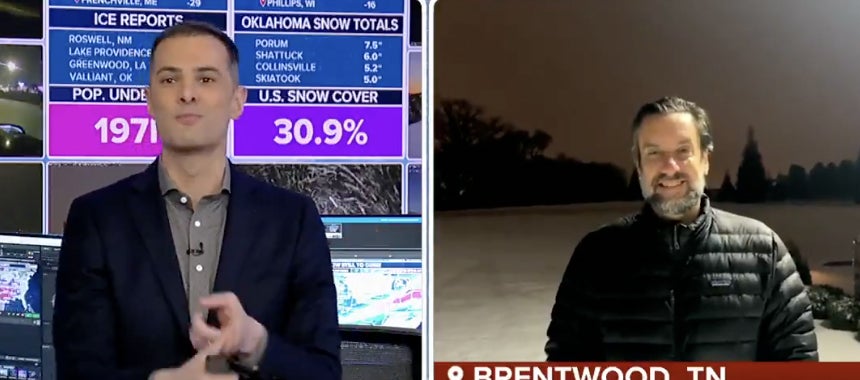David Zweig on the Remarkable Connection Between Free Speech and Bodily Autonomy at Universities
16 Feb 2023
CLAY: First guest of the day and he has got a really interesting piece up right now. He’s David Zweig. He’s been on the show a couple of times before. Journalist with The Atlantic, Free Press and also New York magazine. He has a Substack. DavidZweig.Substack.com, and I want to start with something that I hadn’t really thought about but then I read your piece and I was like, “Man, this is so fascinating.” You have pointed out that the universities that have the most stringent speech codes also have the most aggressive requirements for the covid shot. And it is such an interesting combination that I hadn’t thought of before. What led you to this idea? What did you uncover and what do you think it’s telling us?
ZWEIG: Hey. Yeah. Thanks for having me, and I had seen this list from this organization called FIRE, which is Foundation for Individual Rights and Expression, where they had put together a list of, I think 200-or-so colleges and universities, and it was based on questionnaires that were sent out to thousands and thousands of students where they rated colleges basically by their free speech environment, you know, by… So, it wasn’t specifically like I don’t think an official code because I’m sure most universities have them. But it was more about what, you know, tens of thousands of students had to say about what’s it like to be on this campus.
A Remarkably Close Correlation Between Colleges’ Vaccine Policies and Their Place on @TheFIREorg‘s Ranking of Colleges’ Free Speech Environments
My latest: https://t.co/1mZeHtxjXW pic.twitter.com/qKC7DkHBd9
— David Zweig (@davidzweig) February 10, 2023
So, I’d seen that list and it stuck in the back of my mind for a long time, and as probably a lot of us have observed, there certainly does seem to be a correlation between kind of the more far left and progressive that universities have become and the limitations on free speech, and I also — from having written about covid for the last three years and really tracking it closely, we also — all sort of observe that the far left has seemed to be the most militant with a lot of its sort of aggressive pandemic policies, which includes vaccines. So, on a whim, you know, I thought, “You know, I’m going to look up a bunch of the colleges on this list. I wonder if there is a correlation.” And I gotta say, I was blown away by how direct and obvious the correlation was. I thought there might be a little bit of a loose connection, but it is 1 to 1.
CLAY: So what I would say looking at this is that there is this idea of kids — and I’m using “kids,” obviously in the definition of college kids — as being in incredible danger. There’s this palpable fear that someone might say something that upsets you, that you might catch covid. My wife is finishing law school right now, and at the school, these kids in their twenties were terrified of what might happen to them if they caught covid. And she had a conversation with some of them and she was like, “Well, what do you think would happen if you caught covid?”
They’re like, “Oh, I would get hospitalized, and I might die,” and I felt so bad for them in that way because I can’t imagine what it’s like to live in a world where you are so terrified all the time about what people might say, about what someone might breathe on you and you might get a virus, and it seems to me that instead of trying to toughen these kids up and share with them risk analysis — and that a big part of adulthood is understanding how to deal with dangers in your life while still being a normal, functioning adult — we’re actually coddling them more and more, which is making them weaker and weaker. In other words, iron sharpens iron. I really do think that’s true, right? The harder you push yourself, the harder you work, the more you end up as a refined version of yourself. The more you coddle these kids, the more coddled they become and the weaker they become.
In my spare time I do pro bono copy editing . . . pic.twitter.com/bjWkutsdcJ
— David Zweig (@davidzweig) February 9, 2023
ZWEIG: Yeah, it’s… (sigh) You articulated this really well — I think better than I do to my piece — which is like this sort of broader connection between a culture or almost like an ideology of victimhood and of danger. You know, where free speech and hearing ideas is dangerous. Hearing things that you don’t want to hear can harm you. It makes sense that the people that kind of enforce that type of environment would also then see covid as this, you know, incredibly dangerous thing to healthy young college students.
CLAY: Yes.
ZWEIG: So, I think you’re right to draw that line from those two things. It’s really kind of like an overall overarching way that these people conduct their lives, the people in charge as well as, I guess, a lot of students at these universities. You know, I think there is something else going on as well, which is — which I touched on in my piece on this, which is — I think it’s also obviously just part of signaling to the tribe that, like, let’s set aside the larger thesis that you mentioned, which I agree with. I think it’s also if it was seen as, quote, “bad” and you’re on the “right” with “the bad people,” if you had questions about some of these covid restrictions and mitigations or vaccine mandates. Therefore, you know, just by like a deductive reasoning, therefore, if we want to be seen as the good people on the far left side, the best way to signal that is to be as aggressive as we can, that the sort of like more fearful we appear and the more, you know, militant we become in in our efforts to sort of fight the covid foe, then the more that shows everyone that our university is on the correct side of things.
CLAY: All right. You write at places — and we’ve talked about this before, which I’d rather to respect that you’ve had the bravery to do this — New York magazine, The Atlantic. I mean, these are not places where I would imagine a lot of the things that you have said, the audience has been particularly receptive to it. You know, the idea that masks don’t make sense, the idea that schools should open up. Are you starting to hear from people who may have been foes of your early reporting, “Yeah, you ended up being right on all this”? Because it’s interesting. It seems like there hasn’t really been a reckoning. It’s just like there’s a lot of people who want to pretend, “Oh, we couldn’t have known any better. It was super complicated in the early days,” and they want to write off the fact that people like you — and, frankly, me and Buck, who’s on his honeymoon right now — were actually out there saying, “No, no,” in real time, “this isn’t making sense.” I’m curious what you’re seeing in your social networks and hearing from people about this.
ZWEIG: Yeah, I think you’re exactly right. For a long time — and there’s a lot of people who are, you know, justifiably angry about this and they want there to be, you know, to use your word of a “reckoning,” or, you know, people have to be held accountable. And I don’t disagree with people in charge being held accountable. But as far as I — (crosstalk)
CLAY: That’s the entire basis of democracy is holding your leaders accountable for their choices. I mean, that’s the point of having elections.
ZWEIG: Yeah, there should be something that happens — some sort of a commission or something to look into this — but kind of pulling the lens back, just sort of regular people, the millions upon millions of citizens who kind of went along with a lot of these things — or, as you were saying, perhaps readers of some of my, you know, early work on this, I don’t think there is going to be a reckoning. I think you’re right. I think the way — and I don’t… I’m not an astute enough observer of history but I think some things, people are… They’re never going to acknowledge, “We were wrong!” I think there’s sort of like a you know, there’s a cognitive dissonance to that, to the moral injury, you know, that someone would suffer from acknowledging the harm that they caused from things that they had advocated for.
 I think a lot of it’s, you know, optics that people wouldn’t want to admit it, you know, out loud to other people. But quite honestly, I think most of it’s probably unconscious. I think we all have our own rationalizations and motivated reasoning. So, they may agree with the things you and I have said about, you know, the pandemic and about a lot of the policies. You know, I was the first person, I think, in a major publication to say, “Open the schools.”
I think a lot of it’s, you know, optics that people wouldn’t want to admit it, you know, out loud to other people. But quite honestly, I think most of it’s probably unconscious. I think we all have our own rationalizations and motivated reasoning. So, they may agree with the things you and I have said about, you know, the pandemic and about a lot of the policies. You know, I was the first person, I think, in a major publication to say, “Open the schools.”
CLAY: Yep.
ZWEIG: This is in the first week of May of 2020, and I think those people now may recognize that was the right thing, but they’ll just simply rationalize it away and say, “We didn’t know.” So, and, you know, and it’s very hard to argue with that without getting into a whole long thing with someone. So, I’m not sure of the solution to this, though. (laughing)
CLAY: Yeah, well, so, and here’s the last question for you. Talking to David Zweig. I was talking about this yesterday on the show. I may build on it here in a little bit. We know that heart, you know, issues are up 30% — heart deaths, heart attack deaths in people age 25 to 44. Are you concerned? You were right on kids being back in school. You were right on masks. You were right on many of the draconian policies out there. Are you as concerned as I am about whether the long-range impact of these covid shots may also be another thing that is going to linger for a long time?
ZWEIG: Well, I was one of the first people to write about the link between myocarditis and covid vaccines. I interviewed the lead scientist from Israel, and I did this for New York magazine way back when. So, I’ve been very concerned about, you know, these serious adverse events related to the vaccine. With that said, I think the problem is it’s going to be very hard to tease out what is causing these things —
CLAY: Yep.
ZWEIG: — because at this point — (crosstalk)
CLAY: Because people are going to argue that it’s covid that caused it, right?
ZWEIG: That’s exactly right.
CLAY: That’s their linchpin here.
ZWEIG: It’s like a Rorschach Test.
CLAY: It’s not the covid shot. It’s the impact of covid infection.
ZWEIG: Exactly. And it’s basically impossible for anyone to prove one way or the other. Of course, different researchers and different scientists are going to produce different studies on this. But the fact is without, like, a proper, you know, separated pool of people (laughs), everyone has had covid just about. And, you know, what is it, 80% or something more of the people than vaccinated? So, at that point, it’s really hard to tease out. And, needless to say, I was talking to a researcher I’m friendly with at one of the top medical schools in the country the other day, and I said to her, “Can you please run a study where we look at the geographic distribution of long-covid sufferers and then let’s cross-reference that with the voting patterns?” I’d be curious about that.
CLAY: That’s a great idea. (laughing)
ZWEIG: That is to say that, like I know you didn’t mention long covid specifically, and I’m not minimizing for the people who genuinely are suffering, but I think, again, people are going to see what they want to see. You know, needless to say, you know, the — (crosstalk)
CLAY: Long covid, in your theory — which I think is true — is going to be far more common in the Northeast and in California than it is in Alabama and Mississippi.
ZWEIG: I think so.
CLAY: Yeah.
A new study looking at screen time for kids, and its relation to, *and continuation after* interrupted schooling, is alarming
My latesthttps://t.co/IFAG8ZhcEH
— David Zweig (@davidzweig) February 16, 2023
ZWEIG: You know, someone could argue, “Well, maybe part of that is, you know, lack of diagnosis in some of the other areas.” But, nevertheless, I mean, there are actually — and I make this point that this sort of idea for a study only because we’ve seen from some of the existing studies that have been done that one of the biggest indicators of long covid is if someone has anxiety about covid.
CLAY: Yep.
ZWEIG: So, again, I’m not diminishing. I think there genuinely are people really suffering from this. But we also have to acknowledge some other factors that may or may not be influencing things. So just getting back to your thing about the heart issues, we already can predict which person, which people will blame it on covid and which person, which people will blame it on the vaccine. I think we don’t know. I think it’s going to be really hard to ever tease it out. But, you know, we’re just going to have to see what happens. But, you know, with all that said, I mean, this gets back to the point in my article to some extent, which is:
What we do know, in my view at least, is that healthy young people — particularly so who have already been infected with covid — there is not robust evidence that they have any benefit of getting vaccinated, let alone, you know, triple, quadruple dose at this point. And certainly, no evidence that this has a real, you know, epidemiological benefit like that it’s going to, you know, stop transmission. So, it just seems like it’s an extraordinary moment that that these universities — particularly so many of these Ivy League universities, you know, the most elite institutions in our country — in my view, have these policies that are just wildly divorced from, you know, a scientific or ethical basis.
CLAY: Fantastic work. You’ve been doing it for a long time. We’ll have you on again when the new book comes out, I believe. David Zweig, keep it up.
ZWEIG: Thanks for having me. Take care.
Recent Stories

Minneapolis ICE Shooting Fallout: Trump & Walz Try to Cool Tensions
Clay & Buck take a look at what comes next in Minnesota.

Karoline Leavitt Schools Press Corps with Immigration Truth
Karoline, as always, comes loaded with facts for the twisted media, including that Tom Homan is heading to Minnesota.

Law Enforcement Is Tough Business, But We Can't Pull Back on Deportations
Law and order is essential. But it's not pretty.

VIP Video: Clay & Buck Take Your Calls on the Minneapolis ICE Shooting
Clay and Buck opened up the phones to callers, many of which have law enforcement expertise.






